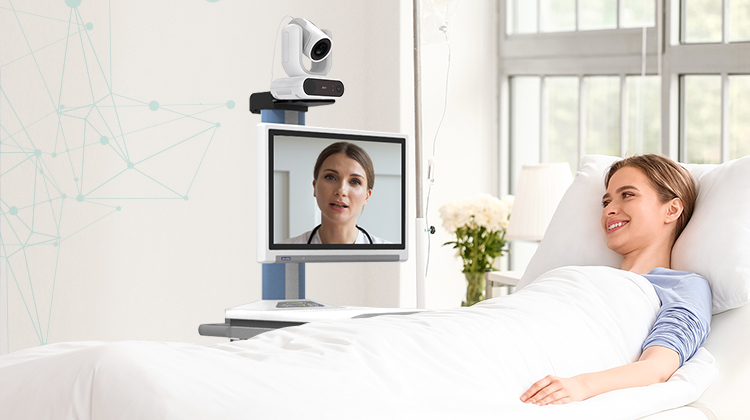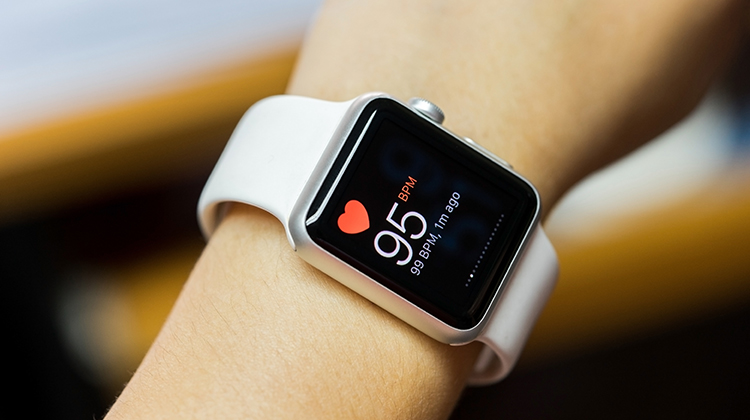The healthcare industry, like many others, is undergoing a rapid transformation driven by the accelerated adoption of technology. Telehealth has become a critical force, extending the reach of healthcare providers and improving patient access to care. As we move into 2024, we’ll explore the latest trends in healthcare technology, focusing on the advancements in AI, telehealth, and wearable devices.
Telehealth and Continuous Care

Continuous care has been one of the byproducts of the COVID pandemic, with patients expecting convenient, quality healthcare on-demand. Not only can patients receive care from more convenient locations, when patients are in wards, they can be remotely monitored by medical grade patient monitoring cameras to support 24-7 care.
For instance, diabetics often require routine eye examinations by an ophthalmologist specializing in diabetic retinopathy, making it particularly difficult for older diabetics living in rural areas. Many manufacturers developed telehealth suitcases and telehealth carts, both of which are suitable for different application environments. The telehealth suitcase is suitable for emergency situations or pop-up clinics with limited space. It can hold a tablet, keyboard, speaker, and smaller medical devices like stethoscopes, wireless ultrasounds, and funduscopes. On the other hand, the telehealth cart is a great option for institutions in rural areas or with scarce resources to connect with specialized practitioners remotely. Generally, the telehealth cart comes with a high-definition PTZ camera, computer, and speaker along with an adjustable medical cart. This configuration allows for high-quality two-way communication for medical professionals to provide care remotely, saving patients time from long travel and waits in healthcare facilities.
AI and Machine Learning

AI is one of the biggest trends in all industries, including healthcare. Now, impressive AI systems from NVIDIA can scan and analyze patient's medical images to identify diseases and potential problems, supporting doctors in making quicker and more accurate diagnoses. Administrative tasks like medical transcription and clinical documentation can be completed through AI-powered speech-to-text systems that can now recognize and make clinical documentation during the consultation itself, so doctors can spend less time on administration and more time on patients, reducing clinical burnout and increasing patient satisfaction.
Smart Wearables

Wearable devices are changing the way we interact with our health, giving us real-time data on our physiological well-being regarding sleep, heart, blood oxygen levels, and other metrics. They help us keep track of our overall health conditions, playing a helpful role in disease prevention or even disease management. Particularly outstanding in the prevention of cardiovascular conditions like arrhythmia, hypertension, and strokes, we see a study using Fitbit trackers to predict undiagnosed atrial fibrillation patients. Other wearable devices capable of tracking patient health include glasses, shoes, and even clothing that Incorporate smart textiles. These innovations will give people a better sense of their own health and help people make healthier choices in their daily lives.
Applying Tech for Easier, Better Healthcare
Health technology can help improve the lives of patients all over the world by making checkups easier and tracking health metrics while simplifying the workflows of physicians and nurses. Especially for areas with a shortage of physicians and nurses, these technologies can help doctors reach a larger patient base and provide high-quality care to patients.
As we see healthcare systems adopting these new technologies and making their institutions smarter to cope with healthcare challenges, practitioners and authorities alike should be aware of how to responsibly and ethically use these systems while being compliant with regulations. When we have advanced technology and proper regulations in place, we are sure to see a great step forward in the healthcare industry.
References
Advantech. Advantech Launches AMiS-22 Telehealth Suitcase for Easy Transport and Mobile Healthcare. Aug 2021.
Capsa Healthcare. Telemedicine Cart by Capsa Healthcare. 2019.
Kutty, Sindhu. The Rise Of AI Voice Assistants In Clinical Documentation. Mar 2021.
LelTek. Leltek. 2024.
Lubitz et al. Detection of Atrial Fibrillation in a Large Population Using Wearable Devices: The Fitbit Heart Study. Sep 2022.
MiiS. MiiS. 2024.
Powell, Kimberly. Leading Medical Centers in Taiwan Adopt NVIDIA Accelerated Computing to Advance Biomedical Research. Jun 2024.